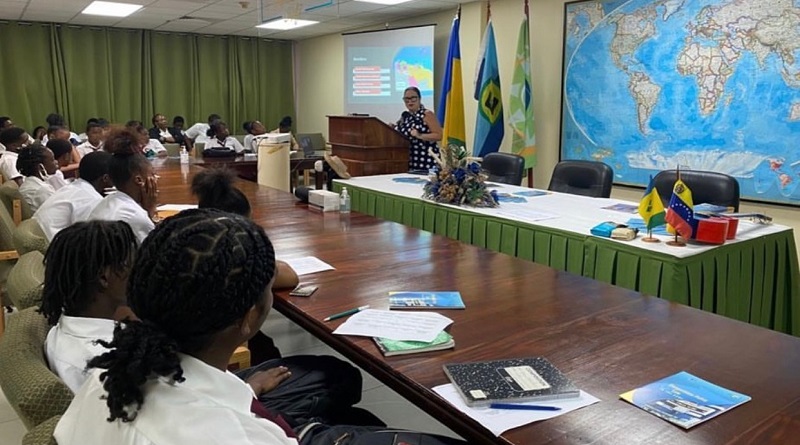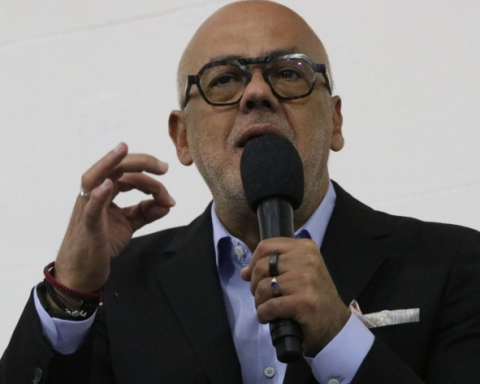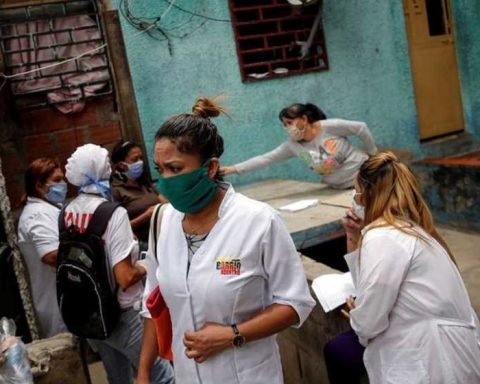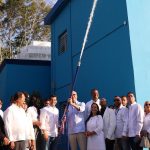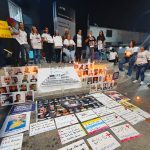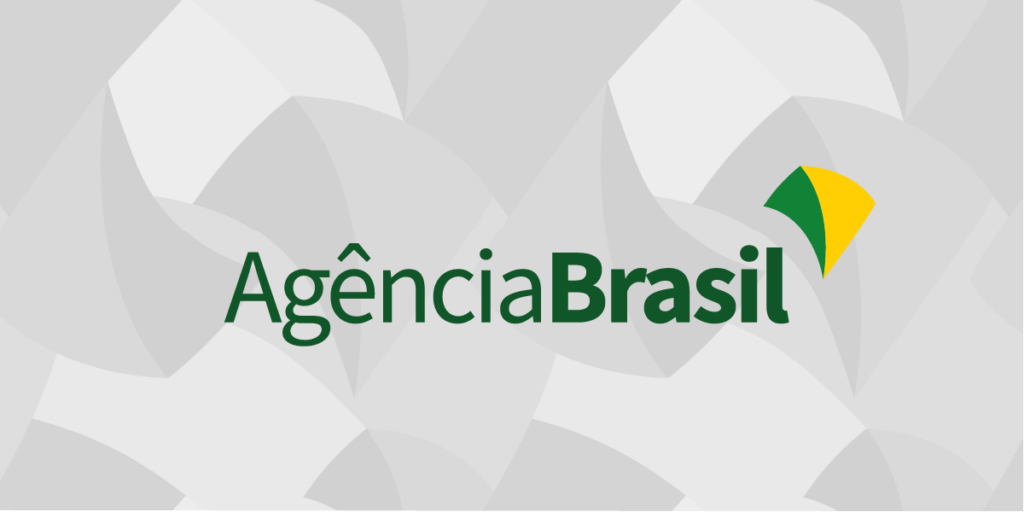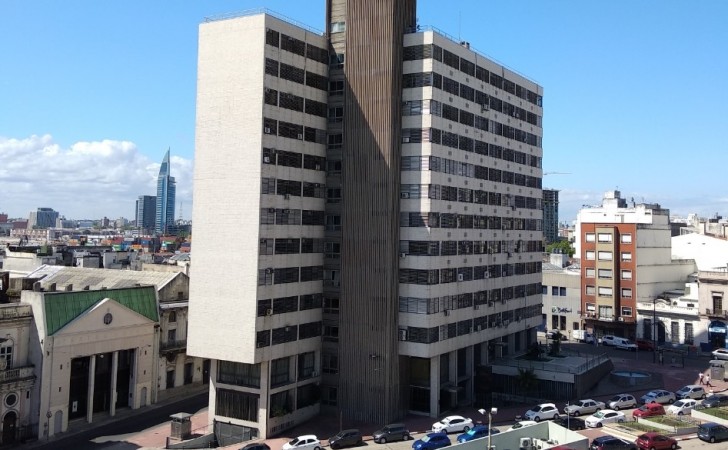The Embassy of the Bolivarian Republic of Venezuela in Saint Vincent and the Grenadinesyesthrough the Venezuelan Institute for Culture and Cooperation (IVCC)participated for the second consecutive year in the Annual Program of School Visits carried out by the Ministry of Foreign Affairs and Foreign Trade of the Caribbean country, in which a presentation was made to the students of the Buccament Bay High School.
The head of the Venezuelan diplomatic mission, Francisco Perez Santana, spoke with the group of Vincentian students about the meaning of the Bolivarian Peace Diplomacy.
“Having better communication and solving our problems and differences by talking, that is the basis of diplomacy, respect for each one, respect for the political systems that each country has, for sovereignty, for independence, for non-interference; not allow other countries to decide what a sovereign nation should do”, explained Pérez Santana.
The Venezuelan ambassador mentioned to the youth the case of relations between Venezuela and the Government of the United States, denouncing the more than 900 unilateral coercive measures imposed against the Government and the Venezuelan people.
“Since 2014, the US government began to impose unilateral coercive measures against the people of Venezuela, there are already 927 sanctions. More than seven trillion dollars belonging to the Venezuelan State are blocked in some 40 international banks. We cannot use them, which affects our people, it does not allow us, for example, to buy medicines, food, supplies… The US government tries to impose its will on other countries, but the people and the Government of Venezuela have resisted the attacks, defending our independence and sovereignty”, stated Pérez Santana.
The academic coordinator of the IVCC ‘Hugo Chávez Frías’, Andreina Bermudez, he explained to the students Venezuelan cultural traditions and manifestations with a sample of videos and photographs, as well as gastronomic traditions; making special emphasis on the similarities between both brother nations: “to learn about diplomacy, we must first know where we come from, know our history, our roots and our origin.”
LEARN MORE:
VTV/Ora/EMPG
